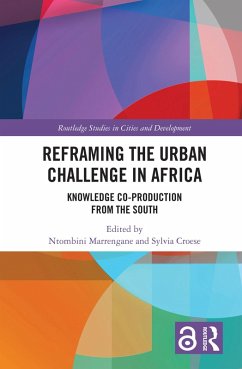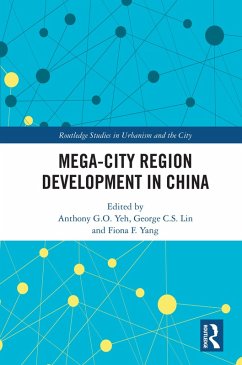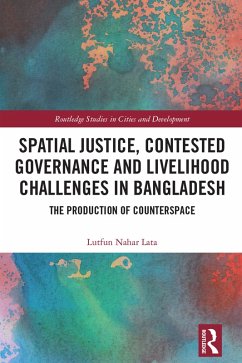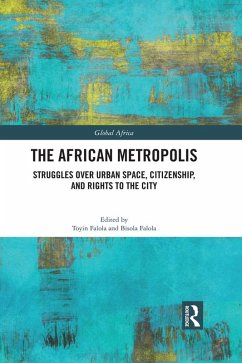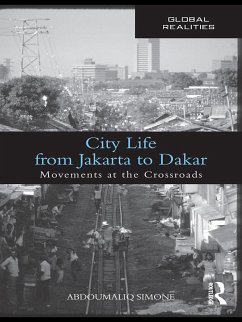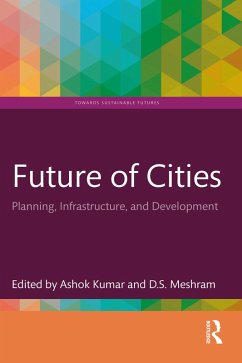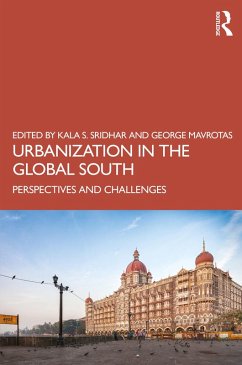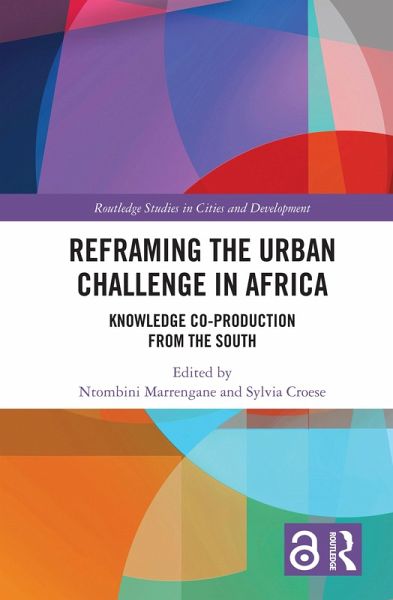
Reframing the Urban Challenge in Africa (eBook, ePUB)
Knowledge Co-production from the South
Redaktion: Marrengane, Ntombini; Croese, Sylvia
Versandkostenfrei!
Sofort per Download lieferbar
0,00 €
inkl. MwSt.
Weitere Ausgaben:

PAYBACK Punkte
0 °P sammeln!
This book explores the changing dynamics and challenges behind the rapid expanse of Africa's urban population.Africa's urban age is underway. With the world's fastest growing urban population, the continent is rapidly transforming from one that is largely rural, to one that is largely urban. Often facing limited budgets, those tasked with managing African cities require empirical evidence on the nature of demands for infrastructure, escalating environmental hazards, and ever-expanding informal settlements. Drawing on the work of the African Urban Research Initiative, this book brings together ...
This book explores the changing dynamics and challenges behind the rapid expanse of Africa's urban population.
Africa's urban age is underway. With the world's fastest growing urban population, the continent is rapidly transforming from one that is largely rural, to one that is largely urban. Often facing limited budgets, those tasked with managing African cities require empirical evidence on the nature of demands for infrastructure, escalating environmental hazards, and ever-expanding informal settlements. Drawing on the work of the African Urban Research Initiative, this book brings together contributions from local researchers investigating key themes and challenges within their own contexts. An important example of urban knowledge co-production, the book demonstrates the regional diversity that can be seen as the main feature of African urbanism, with even well-accepted concepts such as informality manifesting in markedly different ways from place to place.
Providing an important nuanced perspective on the heterogeneity of African cities and the challenges they face, this book will be an important resource for researchers across development studies, African studies, and urban studies.
The Open Access version of this book, available at
http://www.taylorfrancis.com/books/e/9781003008385, has been made available under a Creative Commons Attribution-Non Commercial-No Derivatives 4.0 license
Africa's urban age is underway. With the world's fastest growing urban population, the continent is rapidly transforming from one that is largely rural, to one that is largely urban. Often facing limited budgets, those tasked with managing African cities require empirical evidence on the nature of demands for infrastructure, escalating environmental hazards, and ever-expanding informal settlements. Drawing on the work of the African Urban Research Initiative, this book brings together contributions from local researchers investigating key themes and challenges within their own contexts. An important example of urban knowledge co-production, the book demonstrates the regional diversity that can be seen as the main feature of African urbanism, with even well-accepted concepts such as informality manifesting in markedly different ways from place to place.
Providing an important nuanced perspective on the heterogeneity of African cities and the challenges they face, this book will be an important resource for researchers across development studies, African studies, and urban studies.
The Open Access version of this book, available at
http://www.taylorfrancis.com/books/e/9781003008385, has been made available under a Creative Commons Attribution-Non Commercial-No Derivatives 4.0 license
Dieser Download kann aus rechtlichen Gründen nur mit Rechnungsadresse in A, B, BG, CY, CZ, D, DK, EW, E, FIN, F, GR, HR, H, IRL, I, LT, L, LR, M, NL, PL, P, R, S, SLO, SK ausgeliefert werden.




